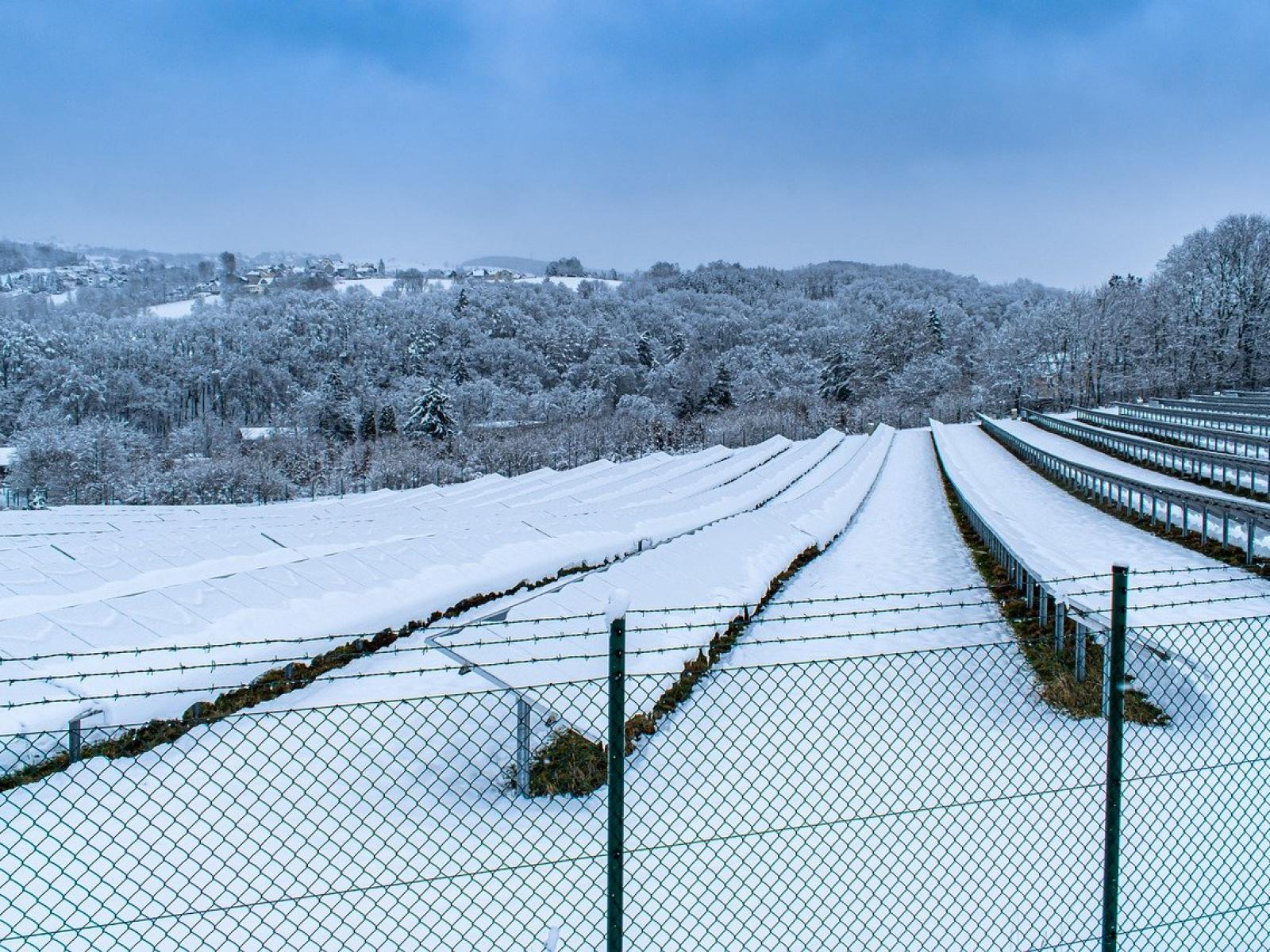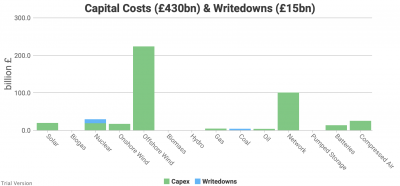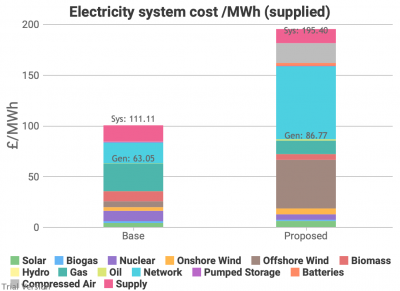
The future of energy (according to Labour)
Wednesday, 11 December 2019
Labour's energy and climate-change proposals in their 2019 manifesto are vastly more expensive than they recognise - probably £1bn by 2030 and £1.5-2bn ASAP in the 2030s. This spending would reduce carbon emissions by less than 50% by 2030. One unintended consequence is that, despite so much infrastructure spending, electricity supply would occasionally be insufficient to meet the radically increased demand.
Many reasons have been given not to vote Labour at this election. The energy and climate-change proposals in their manifesto have not been top of the pile, although they are part of spending proposals that have been widely observed to be unaffordable in total.
Perhaps because there are so many other reasons not to vote for them, their energy proposals have mostly escaped serious scrutiny. But they smelt dodgy to us, so we thought we'd put them to the test, as the first run for the Future Scenarios model on our Energy Data sub-site.
The first challenge is interpreting what their proposals would mean in practice. We set out in some length in Part 1 of our analysis the assumptions that we judged most accurately combined Labour's proposals with the credible ways they might be implemented. We were, in general, generous in our assumptions (e.g. on cost and capacity of storage) to invalidate any suggestion that this was a hatchet job.
The second challenge was to explain and visualise the impacts of such a rapid transformation of our energy systems as proposed by Labour. We went into great detail in Part 2 of our analysis, although you can investigate it more dynamically by loading our assumptions (as a JSON file) into the Future Scenarios model. We also put out a condensed form of Part 2 as a tweetstorm.
The long and the short of it is that Labour have woefully under-costed their proposals. They repeatedly claimed that their proposals were "fully costed" unlike their opponents, in their "grey book" accompanying the manifesto. But that is only as valuable as it is accurate. They did not allow for the full system costs of their proposals.
Labour budgeted £250bn over 10 years for their Green Industrial Revolution, which included their energy and climate-change proposals, but also many other things. So they allowed some part of £250bn for their objectives of decarbonising 90% of electricity and 50% of heat by 2030, and a wide-scale transition to electric transport.
We estimate that just the electricity part of their proposals would cost around £445bn. Allowing for the heat and transport aspects of their proposal, the cost to 2030 is probably the best part of £1 trillion. That is around £100bn a year, or nearly 5% of GDP.
Beyond 2030, they aim to achieve net-zero carbon emissions as soon as possible in the 2030s, including decarbonising the other 50% of heat and largely replacing internal combustion engines in transport. We estimated that might bring the total cost to £1.5-2tn.
This is probably a best case, because we assumed certain essential technologies that are currently unproven, such as Compressed-Air Storage, quickly achieved the low costs that its proponents claim it is capable of. Without this, the plans would be even more expensive or simply impossible.
We estimated that this would raise the cost of electricity to £195.40/MWh excluding environmental costs and margins for operators. That probably puts the price to customers at around 21.5p/kWh.
The effect is more significant than a 50% increase in electricity prices, because 50% of heat would also have been electrified. Those moved from gas to electric heating would see their heating costs nearly doubled (over 8p/kWh of heat). The annual energy costs of a typical house with an Air-Source Heat Pump might be around £2,300.
Related blogs






